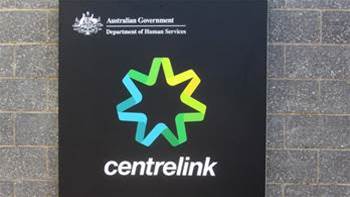The government has committed to reviewing public sector programs that exchange or match Australians’ data and will consider drafting a legal framework and setting up a statutory agency to audit automated decision-making.

All 56 of the Royal Commission into Robodebt's recommendations were either accepted or agreed in principle in a report tabled in parliament yesterday [pdf].
“We will continue to push forward with reforms to ensure a failure like the Robodebt scheme can never happen again,” minister for social services Amanda Rishworth said in a statement.
The joint minister for the National Disability and Insurance Scheme (NDIS) and for government services Bill Shorten added, “There's a few [recommendations] agreed ‘in principle’; we've got to work out how we implement them, but the vast majority were just agreed in totality.”
Automated decision-making
The Royal Commission's report [pdf] recommended that the government “consider” a “consistent legal framework” and a new or expanded statutory agency to “audit automated decision-making.”
The government “accepted” consideration of the legislative framework and the details that Commissioner Catherine Holmes included addressing how the framework should uphold Australians’ right to appeal decisions and have transparency over how decisions are made.
“There should be a clear path for those affected by decisions to seek review,” Holmes wrote in July.
“Departmental websites should contain information advising that automated decision-making is used and explaining in plain language how the process works.
"[In addition] business rules and algorithms should be made available, to enable independent expert scrutiny.”
The government’s response states that any forthcoming framework could be “clear and transparent while harnessing the speed, cost and efficiency benefits of technological advances in artificial intelligence and automation.”
The government said its commitment to the framework is consistent with its “response to the Privacy Act Review report,” in which it agreed to draft amendments to that Act that would enshrine 'a right to request meaningful information about how automated decisions are made'.”
Holmes’ recommended auditing body - which the government's response also accepted - would monitor automated systems’ “technical aspects and their impact in respect of fairness, the avoiding of bias, and client usability,” she wrote.
The government committed to “considering…establishing a body or expanding the functions of an existing body,” to be responsible for “safeguards for artificial intelligence and automated decision-making.”
NSW became the first state to establish a body that reviews public sector use of AI in 2021; the AI Advisory Committee reviews agencies' proposals to build bespoke solutions before deployment.
The closest to an already-established Commonwealth framework for automated decision-making is the Department of Industry Science and Resources' AI ethics guidelines: eight voluntary principles that private and public sector organisations can commit to such as contestability, and accountability.
The European Union has adopted a more mandatory framework enshrined in the General Data Protection Regulation.
Article 22 of the GDPR safeguards individuals against systems that “subject [them] to a decision based solely on automated processing."
There was no mention of how the proposed framework could impact automated decision-making programs currently used in the social services sector like reviews of applications to access and renew disability support plans.
Critics of the National Disability Insurance Agency’s (NDIA's) use of automated assessments of recipients' needs and financial support refer to that particular scheme as “Roboplanning.”
However, Shorten has rejected the comparison, saying, unlike Robodebt, NDIA’s assessments retain a human-in-the-loop and allow for manual modifications to recipients’ plans.
Inter-agency data matching and exchange programs
The government also accepted recommendations to review current and future “end-to-end data exchanges” and “data-matching programs” between Services Australia and the Australian Taxation Office (ATO).
“The Commonwealth should seek legal advice on the end-to-end data exchange processes which are currently operating between Services Australia and the ATO to ensure they are lawful,” Holmes wrote in her report.
“The ATO and DHS [Services Australia’s previous name] should take immediate steps to review and strengthen their operational governance practices as applied to jointly conducted data-matching programs.”
She said that the reviews needed to ensure that the joint programs were "properly documented" and "legally compliant."
The government said that future proposals to exchange and match data between the two agencies would be reviewed, and that reviews of currently operating programs are already underway.
“ATO and Services Australia are reviewing all existing data exchanges operating between the agencies to ensure all legal and ethical requirements are met.”
Both agencies “have obtained independent, external legal advice in respect of the Pay As You Go (PAYG) and Single Touch Payroll (STP) data exchange programs, which confirm that both agencies are complying with the required legislative frameworks governing each aspect of the data exchange,” the government's response read.
However, the response made no mention of the two agencies’ data matching programs used to crack down on fraudulent claims for early superannuation access and the JobKeeper scheme; the latter was a financial incentive for businesses to hire employees during the pandemic.
The government also announced a new advisory board to review future changes to the welfare system, which will include former NSW minister for customer service and digital government Victor Dominello and former human rights commissioner Edward Santow who is the current director of the University of Technology Sydney’s Human Technology Institute, which advocates for ethical use of AI.

























